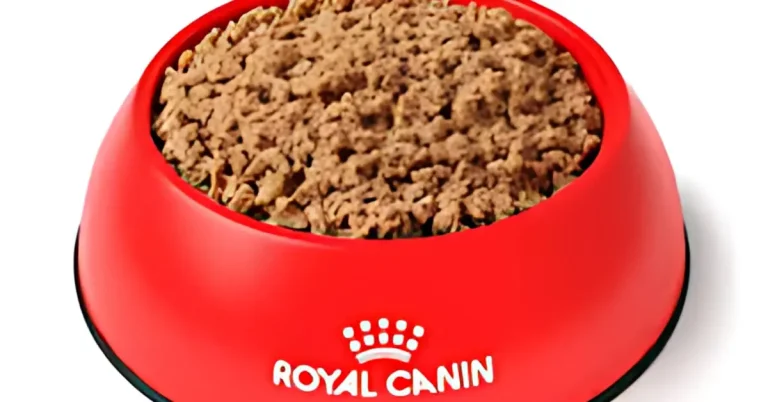The cannabis industry is evolving rapidly, and as more compounds are discovered, people are becoming more curious about their effects and how they interact with the body. One such compound is THCA (tetrahydrocannabinolic acid), the precursor to THC. While THC is well-known for its psychoactive properties and is commonly tested in drug screenings, the question remains: Does THCA Show Up on Drug Tests?
This blog post will provide an in-depth analysis of THCA and its interaction with drug tests, examining factors like consumption methods, metabolism, and test sensitivity. By the end, you’ll have a comprehensive understanding of whether THCA poses a risk in drug testing scenarios.
Table of Contents
ToggleKey Takeaway
- THCA is not psychotropic, but when heated, it becomes THC.
- Drug tests detect THC metabolites (THC-COOH), not raw THCA.
- THCA may convert to THC in the body, posing a slight risk.
- Smoking or vaping THCA increases the chance of a positive test.
- Dosage, metabolism, test sensitivity, and body fat impact detection.
- Avoid heat, use lab-tested products, stay hydrated, and allow time before testing.
- Raw THCA is low-risk, but any THC formation can lead to detection.
What is THCA? Understanding Its Chemical Nature
The Difference Between THCA and THC
Raw cannabis contains THCA, a naturally occurring cannabinoid. Unlike THC (tetrahydrocannabinol), THCA is non-psychoactive because it does not bind effectively to CB1 receptors in the brain. However, when heated through smoking, vaping, or cooking (a process known as decarboxylation), THCA converts into THC, which produces the well-known “high.”
THCA’s Role in Cannabis Products
Many cannabis products, particularly those marketed as raw cannabis extracts, tinctures, or THCA isolates, contain significant amounts of THCA. Because it does not produce psychoactive effects in its raw form, many consumers use it for potential therapeutic benefits, such as reducing inflammation or neuroprotection.
Benefits and Uses of THCA
According to research, THCA may provide a number of health advantages, such as:
Anti-inflammatory Properties: It may help reduce inflammation, making it beneficial for arthritis and Crohn’s disease.
Neuroprotective Effects: THCA has shown promise in protecting brain cells, which could be useful for neurodegenerative diseases like Alzheimer’s and Parkinson’s.
Nausea and Appetite Control: Some studies suggest THCA may help with nausea and appetite regulation, similar to THC but without psychoactive effects.
Pain Relief: Preliminary research indicates THCA might have analgesic properties, offering relief from chronic pain.
How Drug Tests Detect THC and Its Metabolites
Standard Drug Testing Methods
Most drug tests are designed to detect THC and its metabolites rather than THCA. Here are the primary types of drug tests used:
Urine Tests (Most Common): Detects THC-COOH (a metabolite of THC) for 3 to 30 days, depending on frequency of use.
Blood Tests: Detects active THC for a few hours to a day.
Saliva Tests: Can detect THC for 24-72 hours.
Hair Follicle Tests: Can detect THC usage for up to 90 days.
Sweat Tests: Used in some legal and employment settings, detecting THC over extended periods.
Does THCA Convert to THC in the Body?
One of the key concerns is whether THCA can convert into THC inside the body. While THCA itself is not psychoactive, some evidence suggests that stomach acid or metabolism might convert small amounts of THCA into THC. This could potentially lead to detectable levels of THC-COOH in urine.
Can THCA Itself Trigger a Positive Drug Test?
THCA vs. THC Metabolites in Drug Screening
Drug tests are typically not designed to detect raw THCA. However, there are a few important considerations:
- Some high-sensitivity tests may detect trace amounts of THCA.
- If THCA is heated before ingestion (e.g., smoking, dabbing, or vaping), it converts to THC, making it highly likely to result in a positive test.
- Some metabolic pathways may convert a portion of THCA into THC, which then gets metabolized into THC-COOH triggering a positive result.
Factors That Increase the Risk of a Positive Test
Several factors can determine whether THCA consumption leads to a failed drug test:
Method of Consumption: Raw THCA consumption has a lower risk compared to smoking or vaping, which converts it into THC.
Dosage & Frequency: Higher doses increase the likelihood of trace THC presence in the bloodstream.
Individual Metabolism: Some people process cannabinoids differently, potentially increasing the conversion rate of THCA to THC.
Sensitivity of the Test: More advanced drug tests may be able to detect raw cannabinoids in addition to metabolites.
Body Fat Percentage: Since THC metabolites are stored in fat cells, individuals with higher body fat may retain THC-COOH longer.
THCA and Drug Tests: What Science Says
Research on THCA and Drug Testing
Scientific research on THC’s effect on drug tests is limited, but some studies suggest:
- THCA is not commonly detected in standard urine tests unless it has been converted into THC.
- In some cases, stomach acid might break down THCA into THC, leading to detectable metabolites in urine.
- A study on cannabis users found that those consuming raw cannabis had lower levels of THC metabolites compared to those consuming heated cannabis.
Real-World Drug Testing Scenarios
Reports from cannabis users indicate that consuming THCA-rich products in raw form rarely leads to positive tests. However, smoking or heating THCA products can easily trigger a positive result.
How to Avoid Testing Positive for THC After Using THCA
Best Practices for THCA Consumers
If you need to take a drug test but still want to consume cannabis products, consider these precautions:
Avoid Heated Consumption: Stay away from smoking, vaping, or baking THCA products.
Opt for Lab-Tested Products: Ensure the THCA product does not contain residual THC.
Time Your Consumption: If you’ve consumed THCA, allow enough time before a test to reduce any risk of detection.
Stay Hydrated: Although hydration won’t eliminate THC-COOH, it can help flush out small amounts.
Use At-Home Drug Tests: These can help you check your system before an official test.
Maintain a Healthy Lifestyle: Regular exercise and a healthy diet may help metabolize and excrete THC-COOH faster.
Can Detox Products Help?
Many products claim to “detox” THC from the body, but their effectiveness varies. Detox kits, activated charcoal, and niacin supplements are often marketed as solutions, but their success is anecdotal and not always backed by science. The safest approach remains time and natural metabolism.
Conclusion
While THCA itself is not commonly targeted in drug tests, its potential conversion into THC means it is not entirely risk-free. The biggest risk comes from heat exposure, which converts THCA into THC, leading to a likely positive test.
If you are facing a drug test and need absolute certainty, avoid THCA altogether to eliminate any risk. Understanding how cannabinoids interact with drug tests can help you make informed decisions, whether for personal, legal, or employment-related reasons. While THCA offers promising health benefits, it is essential to balance its potential advantages with the risk of unwanted drug test results. Always consider your circumstances, research your options, and consult professionals if necessary to navigate this complex landscape effectively.
FAQs
Can raw THCA cause a positive drug test?
Raw THCA is unlikely to trigger a positive drug test unless it is heated or metabolized into THC in the body. However, high doses could still pose a minimal risk.
How long does THCA stay in the body?
THCA itself is not well-studied for retention times, but if converted to THC, the metabolites can be detected in urine for up to 30 days depending on the frequency of use.
Does secondhand THCA smoke cause a failed drug test?
If you are exposed to THCA smoke, it has already been converted to THC, and excessive exposure could introduce trace amounts into your system. However, casual exposure is unlikely to cause a positive test.
Can THCA products be legally used without drug test concerns?
Laws vary, but in some regions, THCA products are considered legal when derived from hemp. However, if subject to drug testing, caution is advised as conversion to THC is possible.
What should I do if I test positive after consuming THCA?
If you believe your positive result was due to THCA, you can request a confirmation test, provide documentation of your THCA use, and consult legal or medical professionals for further guidance.
I’m Ash, a health writer passionate about simplifying wellness and empowering others to live healthier lives. With a focus on evidence-based content, I share practical tips and insights to inspire positive change.






